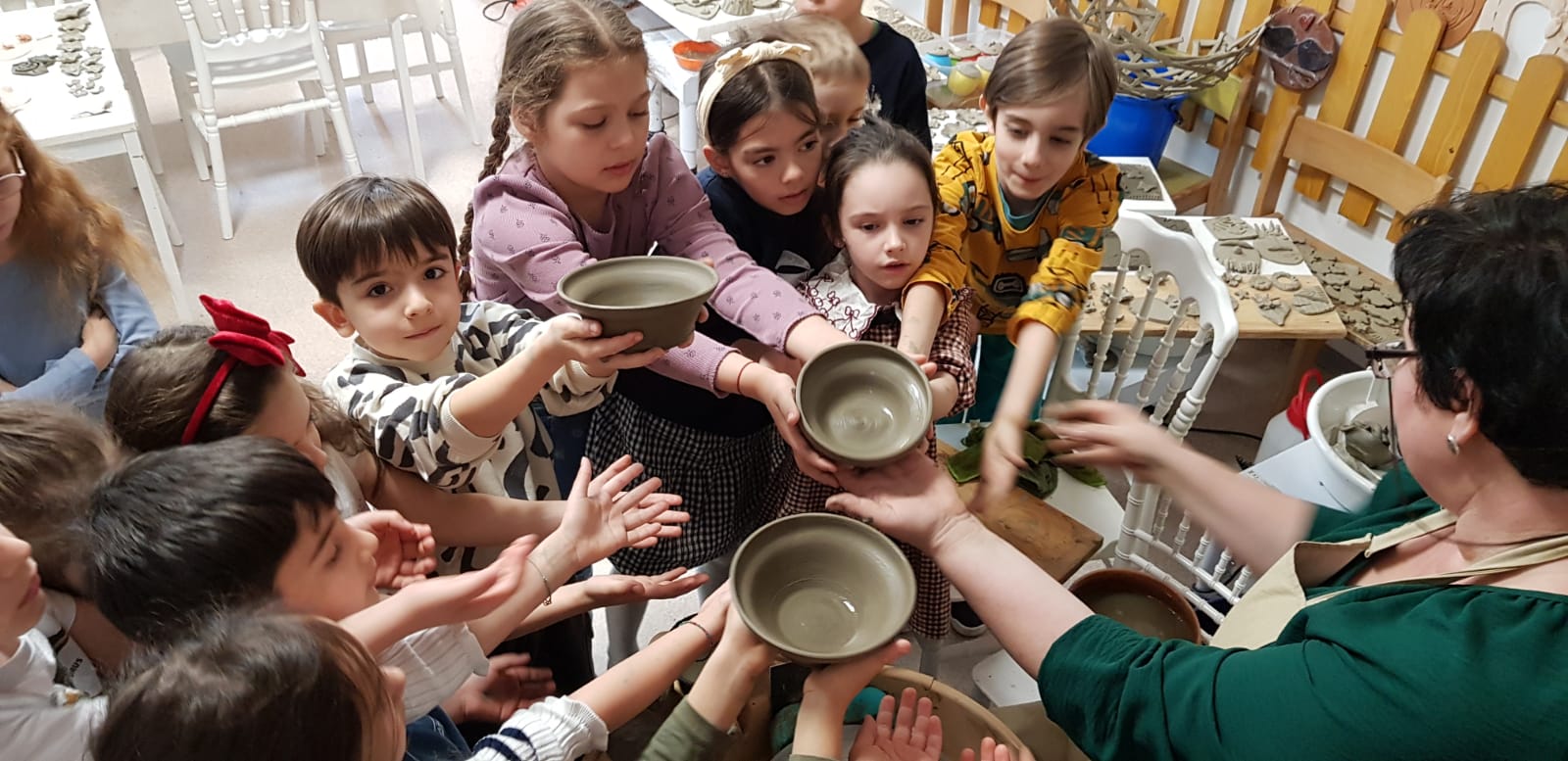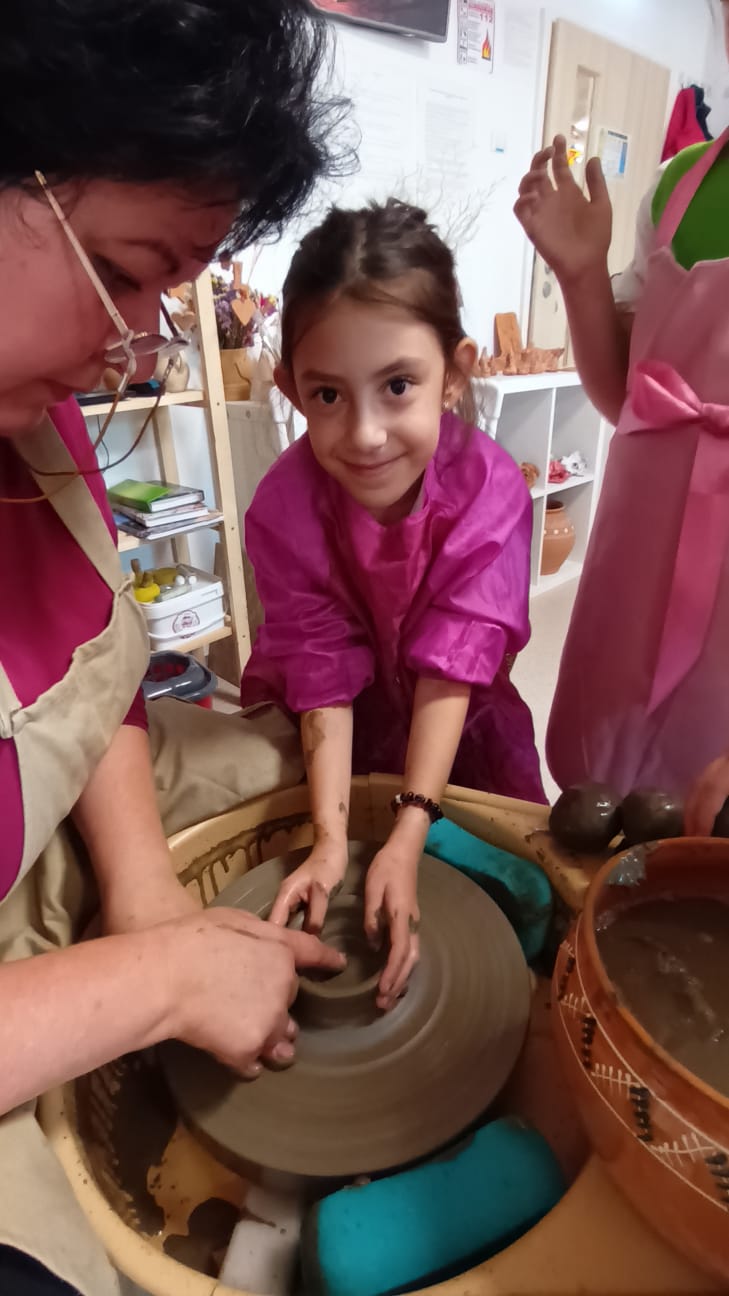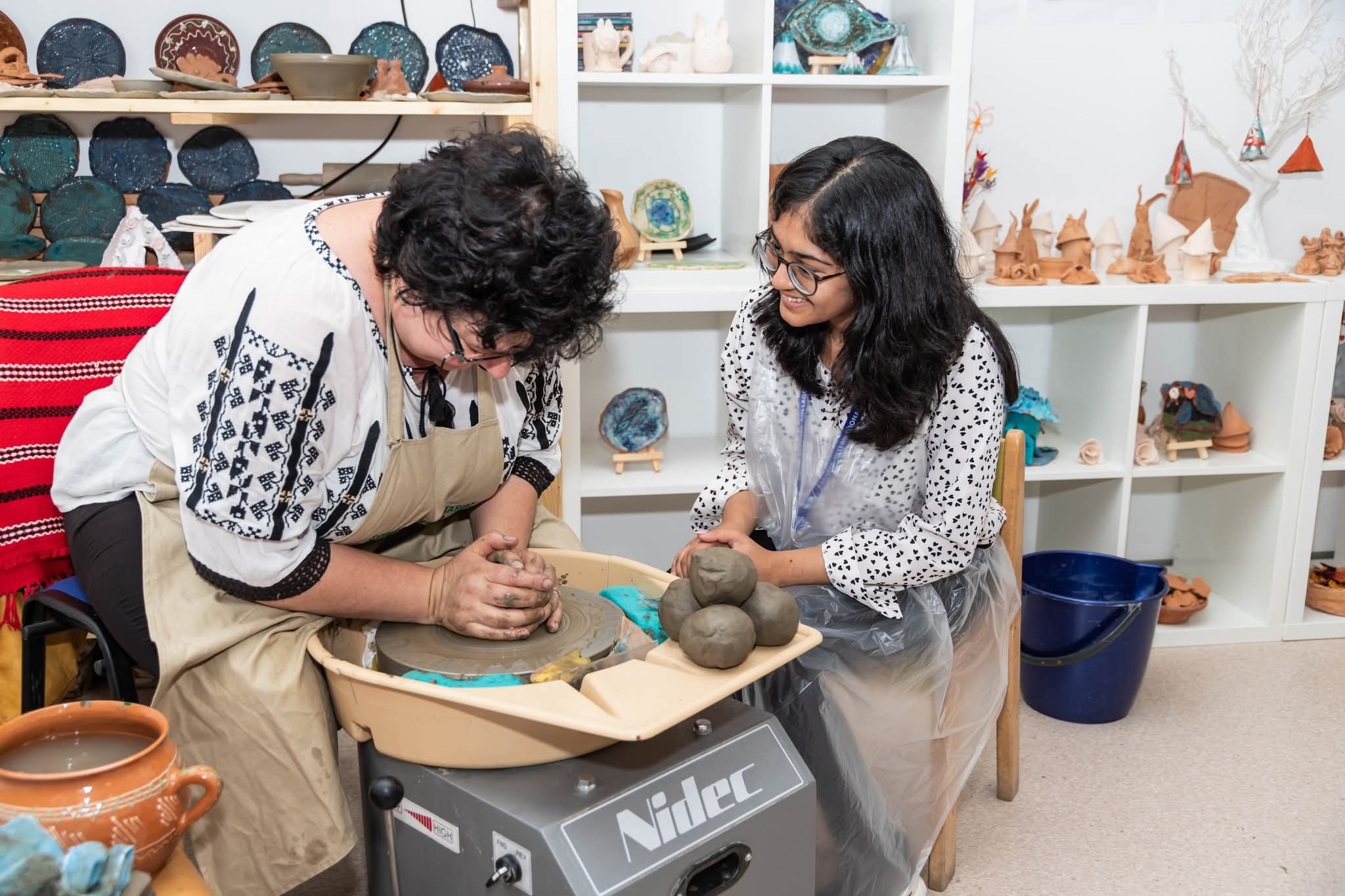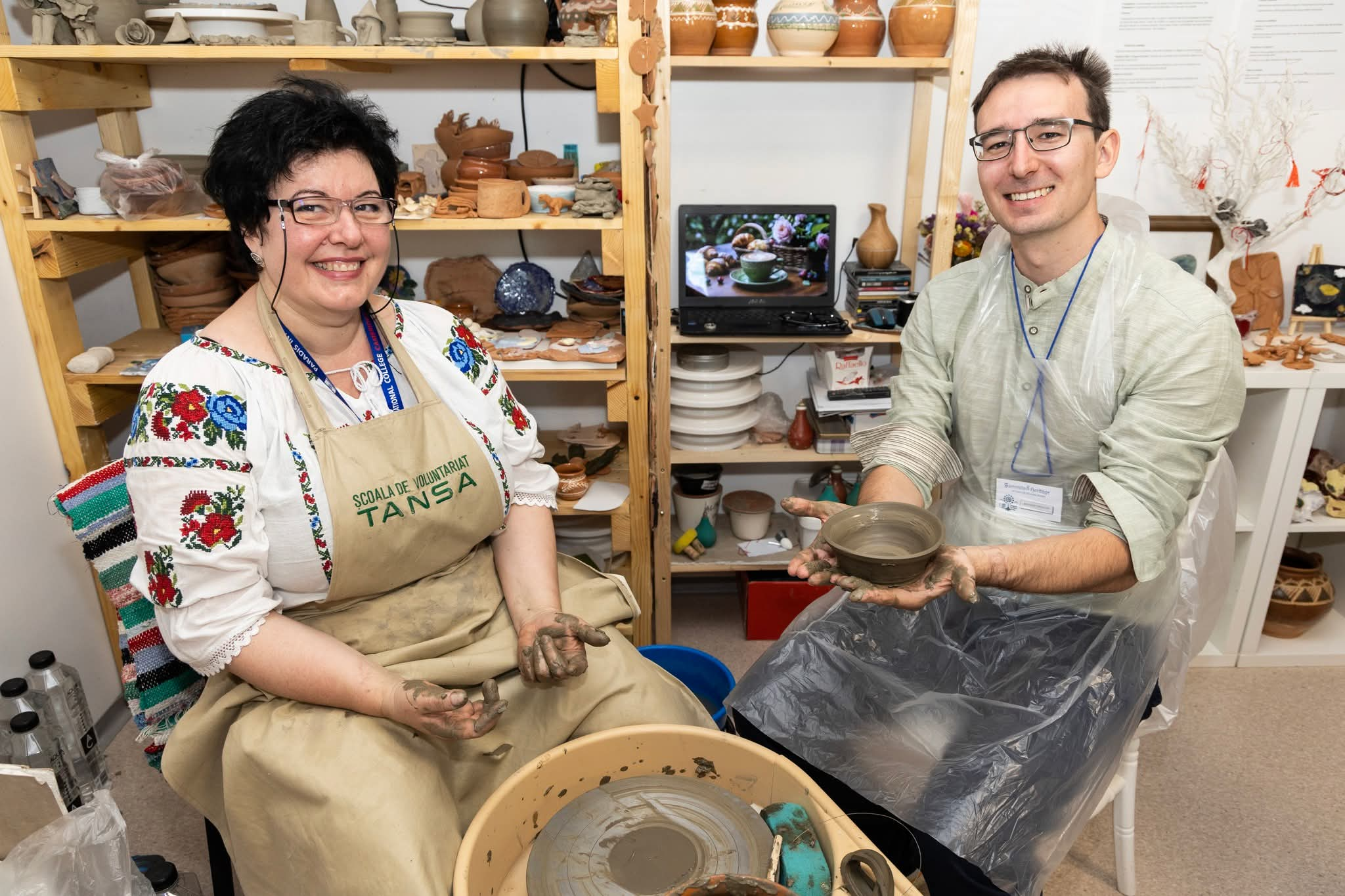
A King Constantine Medal Story – Rodica, Paradis International College, Romania
Rodica, from Tansa, Romania has been awarded this year’s King Constantine Medal from Paradis International College for her dedication to reviving her village’s nearly forgotten pottery tradition, teaching children, and preserving a cultural heritage that was at risk of disappearing. The King Constantine Medal is not always awarded to students; it is presented to an individual or group of individuals from each Global Member School who has/have undertaken unusual and outstanding service work and, in doing so, has/have supported and promoted the IDEALS of Round Square. Rodica shares what it means to her:
I was inspired by the desire to bring back to life a craft that was at risk of disappearing with the older generations. In 2021, through the project Tansa Loc de Poveste, I was challenged to learn pottery and to reopen a ceramics centre that had been closed for over thirty years. I did not come from a family of potters and had no prior experience, but I felt a responsibility to preserve this vital part of my village’s cultural identity for future generations.
The moment I first placed my hands on the potter’s wheel, I realised this challenge could become my mission. Clay, though fragile, has the power to bring people together and to convey values. The inspiration to keep the heritage of my community alive and to share it with children and youth is what motivated me to continue and ultimately led to receiving the King Constantine Medal.
The biggest challenge was starting without any experience and without a mentor. I knew nothing about firing clay, glazes, or temperatures. My first attempts were mostly failures: the pots cracked, the colours changed unexpectedly, and many pieces were ruined. Each failure felt discouraging, but I learned from every mistake. I studied museums, archives, and books, sought advice from others, and experimented again and again. Over time, I discovered the “secrets” of clay and colour, and gradually moved from a traditional kiln to an electric one, which gave me more control. Step by step, I began to achieve the results I had been seeking.
What kept me going was not only my desire to save this pottery craft, but my responsibility to pass it on to children and the wider community. Each successful piece after many attempts proved that perseverance mattered, and that I could make a lasting contribution to the village’s cultural life.
I believe the greatest impact of my work has been bringing a nearly forgotten craft back to life and placing it once again at the heart of the community. For children, pottery became a way to learn through play, explore their creativity, and discover patience. They leave the workshop with dirty hands but hearts full of joy. For the school and the village, my work brought a sense of pride and identity. People rediscovered the beauty of Tansa ceramics and began to view local traditions with renewed respect and interest. My journey shows that even when you start without experience, with patience, perseverance, and a sense of responsibility, you can create something valuable for others.
Receiving the King Constantine Medal was a great joy and a great responsibility. I felt that my work, which began with uncertain steps, was seen and appreciated not only in my village but beyond. It was confirmation that my efforts to preserve pottery and to pass it on have a deeper meaning than I had imagined. The recognition gives me confidence to continue working with even more dedication, to involve more children, and to carry the story of Tansa ceramics further. The medal is not just for me; it is for the entire community. It reminds me that every effort to preserve tradition matters and can spark inspiration in the hearts of others.
To the children and everyone reading this, I would say: every path we choose in life is a story. My story began with clay, and it taught me that from a simple piece of earth, forms full of life and beauty can emerge. The same is true for people: every child has a gift, a light, a dream waiting to be discovered. The most important thing is to believe in what we do, take responsibility for our work, and move forward with an open heart. Joy comes when we share our work with others and see that it brings smiles, courage, and hope. Life is like clay — malleable, full of possibilities, ready to take shape in our hands. All we need is the courage to dream and the patience to shape that dream until it becomes reality.
Even now, as I work to rebuild my pottery workshop after it recently burnt down, I carry this responsibility with me: that with patience, dedication, and care for my community, we can shape not only clay but the lives and hearts of those around us.
If you are inspired by Rodica, here are four things to consider:
Step 1: Immerse Yourself and Take Responsibility
- Identify a tradition, craft, or cultural practice at risk of disappearing.
- Take ownership of learning it yourself, even if you have no prior experience.
- Understand that your efforts are not just for you—they carry responsibility for preserving something meaningful for the community.
Step 2: Learn Through Experimentation
- Begin hands-on practice, recognising that mistakes are part of the learning process.
- Study archives, books, museums, or online resources to understand techniques.
- Seek advice from others and experiment repeatedly until you gain mastery. Patience is essential.
Step 3: Share Knowledge and Engage the Community
- Involve children and community members by teaching workshops or hosting events.
- Emphasise creativity, play, and cultural appreciation.
- Make the craft accessible, so it becomes part of the community’s identity again.
Step 4: Reflect, Sustain, and Expan
- Celebrate successes but also take responsibility for the sustainability of your project.
- Document your process, share stories, and inspire others to participate.
- Continue building on your work, creating lasting impact and pride in the tradition for future generations.




